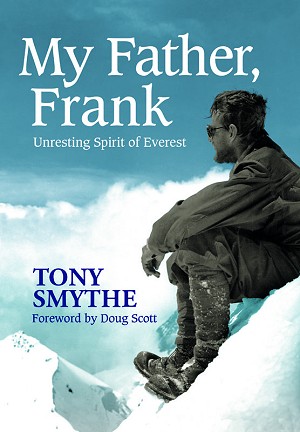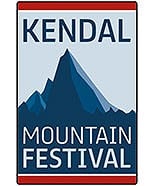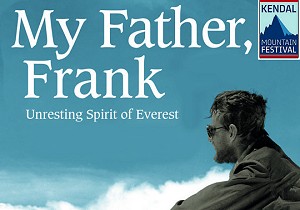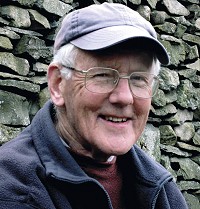
Frank Smythe's mountaineering achievements in the decade before the Second World War became a part of climbing history. His intensive Alpine climbing, followed by two Himalayan expeditions became the prelude to Everest. In 1933 on that great mountain, climbing alone and without supplementary oxygen he got to within 820 feet of the top, a record height before efforts were resumed post-war and Everest was climbed in 1953. And as a superb Himalayan finale, in 1937 he returned to the Indian Garhwal to climb difficult peaks up to 24,000 feet in a rapid lightweight style.
The expeditions were central to his lifetime's work as a writer and photographer — 27 books and albums, together with numberless newspaper and magazine articles, intensive lecturing, radio broadcasts and a film. It was an output that made him a celebrity, a rare feat in the days before television and the internet. He had tens of thousands of readers and his name was familiar to perhaps millions of the general public. It was an incredible career, especially since he died at the early age of 48 after a serious illness in India.
Frank Smythe was resolute in keeping his home life private, and few details of it emerged in his writings. It was a turbulent life, even from earliest childhood, and remained so, with ambition and impatience almost overwhelming him at times, and eventually this volatile mix, apart from alienating some more traditional members of the Alpine Club, would lead to the break-up of his marriage.

My Father, Frank has recently been nominated for the Boardman Tasker Prize 2014 and will be featuring in this years Kendal Mountain Festival.
In mid-September Victoria Halliday at Vertebrate Publishing caught up with Tony in order to ask him a few questions about the book, his father and the process of putting the two together:
VH: What first prompted you to write My Father, Frank?
TS: In 1999 the mountaineering publisher Ken Wilson [founder of Baton Wicks] asked me to help with his production of the Frank Smythe Omnibus – the reprint of six of Frank’s Alpine and Himalayan books. The impact on me of reading these again after half a century, together with Ken’s enthusiasm for Frank’s climbing – particularly during his Valley of Flowers expedition in Garhwal, were probably the two key things that convinced me to take on the story of his life.
VH: What did you find most challenging and most rewarding about the writing process?

The most rewarding part was the research – some eight years of it, which turned out to be a hugely interesting voyage of discovery of the father I had hardly known (he abandoned his family when I was four and died some ten years after that).
VH: How did writing the book affect your view of your father?
TS: Essentially he became a real person instead of the invisible hero of my youth. I was astonished by his energy and his determination to become a writer. I was immensely impressed by his overcoming of the difficulties stemming from a dreadful upbringing and possessive mother. She had been widowed when Frank, her only child, was a baby and their relationship remained tortuous for the rest of her life. But I also squirmed at his behaviour at times – for example the dreadful saga of his Grépon climb with Ivan Waller and Tom Graham Brown in 1928.
VH: What do you consider to be your father’s greatest achievement?
TS: In climbing, it has to be his solo up the final thousand feet of the south ridge of the Mana Peak in Garhwal during his first ascent of the mountain in 1937.
In his ‘sea level’ life – his writing, which captivated and inspired countless numbers of people.
VH: You also wrote Rock Climbers in Action in Snowdonia, praised as the ‘first really modern book about climbing in Britain' (Steve Dean). What do you see as the most significant changes to have taken place in British climbing since its publication?
TS: For those bitten by the bug rock climbing is as enthralling and addictive as ever. But there have been huge advances in standards. Techniques in belaying and modern protection gear have made it a safer activity (for me the label ‘sport’ applies only to climbing on artificial walls). People now train tirelessly to improve. There are formal competitions. The Joe Brown era is a lifetime ago.
VH: How has your own relationship with climbing changed since your first experiences in the mountains?
TS: At Easter in 1950 I was a 15 year old with a school group staying in the Ogwen Valley in Snowdonia. There were about six of us with a schoolmaster in charge. Each day he took the youngest member climbing, asked where the rest of us intended to go, told us to take care, and left us to it. We had a couple of hemp ropes, a few slings and some ex-WD steel karabiners, and my older brother, John, aged 17 had read about how to do rock climbing. So he was the leader. We went up Tryfan, the Milestone Buttress and the Idwal Slabs. Later John tackled Soap Gut (graded Very Severe) with a contemporary called Stokes. We all climbed in nailed boots and it rained a lot. I’m not sure how or why we survived, but it was fabulous fun. Magic!
Now in 2014 I’ve become a bit decrepit and I go walking in the hills, at peace with the world, savouring the memory of those long-gone days and the more or less safer years on bigger things that followed.
VH: What do you enjoy doing when you’re not spending time in the mountains?
TS: I ride my road or mountain bike, and where I live in the Lake District there are some wonderfully remote, traffic-free lanes and tracks that test the fitness with steep climbs, usually rewarded with fine views at the top.
VH: Any more books on the horizon?
TS: Not at the moment, but I’ve learnt to be wary of saying ‘never again’ to anything.
About the Author
After leaving school he joined the RAF, serving for eight years as a pilot, flying Canberras and Javelins before resigning to devote more time to climbing and travelling. He made numerous journeys, climbs and expeditions, giving lectures to schools and societies about his experiences in the Alps, Eastern Europe and Russia, Canada and Alaska, the Himalayas and South America. In later years he became a potter, making hand-thrown tableware on a wheel at his workshop in Oxfordshire before moving to the Lake District, where he could indulge his passion for paragliding more intensively. To see more of Scotland he set about completing the Munros, summiting the last in 2005, just 50 years after the first.
He is the author of Rock Climbers in Action in Snowdonia, a 'cult' book of the 1960s jointly produced with his photographer friend, John Cleare, and has written extensively for journals and magazines about his adventures. He is married, and he and his wife have a son, a daughter, and four grandchildren.
The Kendal Mountain Festival 2014 - 20 to 23 November

Kendal Mountain Festival is by far the largest and most varied event of its type in the world - it is also the main social event for outdoor enthusiasts in the UK
'Kendal' is one of the leading festivals of its kind in the world. It is an internationally-known event, attracting film premieres from around the globe. Film makers, TV producers, adventurers, climbers and world-class lecturers gather to take part in four packed days of the very best films, speakers, books and exhibitions covering all aspects of mountain and adventure sports culture. It is also the main social event for outdoor enthusiasts in the UK and 2014 will be our 15th straight year.
HOW TO BOOK TICKETS
The dates are 20-23 November and tickets are available now. Book online - www.mountainfest.co.uk - or by phone 01539 725133 - news as it happens at www.mountainfest.co.uk
ACCOMMODATION
Easily accessible from the M6 and by train and there are plenty of accommodation options in and around the town but you need to be on your toes as they fill up very quickly over the Mountain Festival weekend.
CAMPING
This year we will once again have a camping field but owing to its popularity, you need to book in advance - more info.
For all your questions, accommodation and travel needs go to www.golakes.co.uk here you will find all the information you should need for your visit to Cumbria, alternatively call the accommodation booking line on 0845 450 1199.






Comments